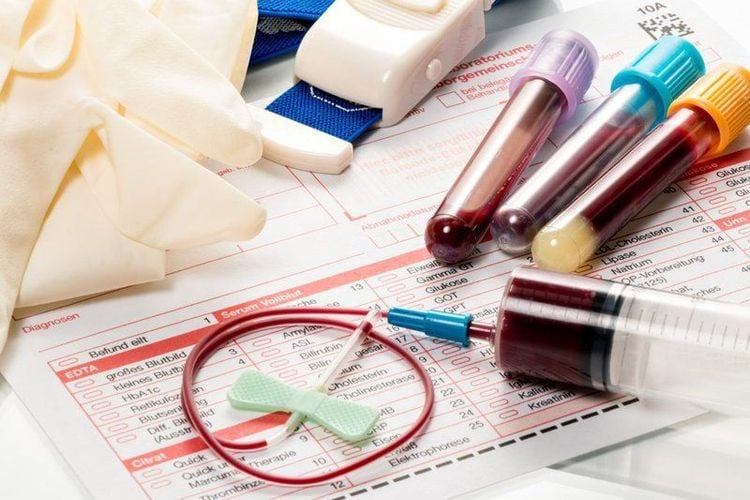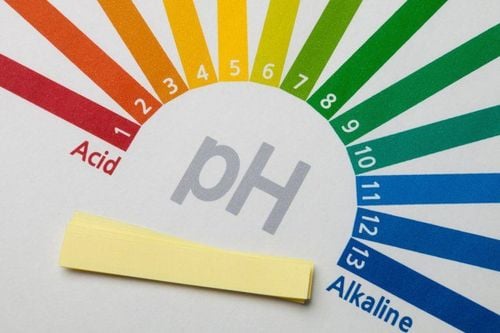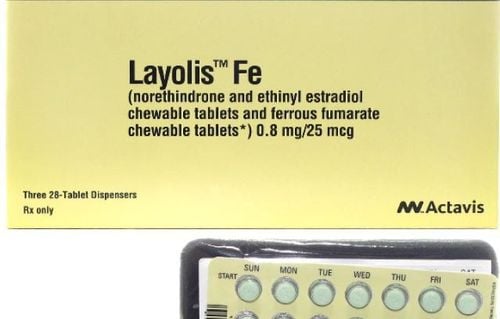This is an automatically translated article.
The article is professionally consulted by MSc Vo Thien Ngon - Urologist, Department of General Surgery, Vinmec Danang International General Hospital.
For men under age 40 with no associated symptoms and no risk factors for underlying medical conditions, blood in the semen usually goes away on its own. But for men aged 40 and older, blood in the semen can be a sign of cancer, a blood clotting disorder...
1. Causes of blood in semen
Causes of blood in semen in men include:Infection and inflammation Infection and inflammation are the most common causes of blood in semen. Infection or inflammation can occur in any of the glands, tubes, or ducts that produce and move semen out of the body. These include:
Prostate (gland that produces the liquid part of semen) Urethra (tubes that carry urine and semen) Epididymis and vas deferens Semen sac In addition, the cause of blood in semen It can be caused by an STI (sexually transmitted infection) such as gonorrhea, chlamydia, or another viral or bacterial infection. Infection and inflammation are the culprits behind nearly four out of ten cases of blood in semen.
Injury or medical procedure Blood in semen usually occurs after some medical procedure. For example, up to 4 out of 5 men have symptoms of blood in their semen after a prostate biopsy.
Procedures performed such as treating urinary problems can also cause minor trauma resulting in temporary bleeding. This symptom usually goes away within a few weeks of having these procedures. Radiation therapy, vasectomy, and sclerotherapy can also cause blood in semen. Physical trauma to the genital organs after a pelvic fracture, trauma to the testicles, excessive sexual activity or masturbation, or other trauma can cause blood in the semen.

Tumors and polyps A review of more than 900 patients with blood in the semen found that only 3.5% of patients had a tumor. Most of these tumors are in the prostate gland. However, blood in semen can be linked to cancers of the testicles, bladder, reproductive organs, and urinary tract. Men, especially the elderly, have risk factors for cancer, so if these men have symptoms in their semen, they should be thoroughly tested to check. Cancer, if left untreated, can be life-threatening.
Polyps in the reproductive tract are benign growths and may not cause any disease yet but can also cause blood in the semen.
Blood vessel problems Thin structural blood vessels can all be associated with bloody ejaculation, from the prostate gland to the small tubes that carry sperm that contain blood vessels. These vessels can all be damaged leading to blood in the semen.
Other diseases High blood pressure, HIV, liver disease, leukemia and some other diseases can also lead to blood in semen.
Up to 15% of cases of blood in semen have no cause found. In many of these cases, blood in the semen will go away on its own without treatment.
2. Accompanying symptoms
When looking for the cause of blood in semen, your doctor will ask about symptoms related to blood in semen, including:Blood in the urine (also known as hematuria) Urinating hot, burning sensation in the urinary tract or other symptoms such as painful urination The patient has difficulty trying to empty the bladder Urinary discomfort Pain during ejaculation On the reproductive organs sex with areas of swelling or pain or scratches from trauma Penile bleeding or other signs of an STD Fever, rapid pulse, and high blood pressure
3. Blood test in semen

Urinalysis or a urine culture to look for infection or other abnormalities. Get tested for an STD if a sexually transmitted disease is suspected. "Test a condom" if there's a chance that blood in the semen is actually coming from your partner's menstrual cycle. The man will be asked to put on a condom and then test the "protected" semen to see if the blood cells are from the patient or the patient's lover. The PSA test, which checks for prostate cancer by measuring a substance called prostate-specific antigen (PSA) in the blood. Other urological tests such as cystoscopy, ultrasound, CT and MRI to further evaluate the patient.
4. Treatment of blood in semen

Antibiotics are used for infections. An anti-inflammatory medication may be prescribed for inflammation. If a sexually transmitted disease (STD) or another condition such as high blood pressure or liver disease is the cause, your doctor will treat these conditions. When blood in semen stems from a recent urological procedure, such as a prostate biopsy, blood in semen usually goes away on its own within a few weeks. In young men, blood in semen that occurs only once or twice without any symptoms or medical history may go away on its own without treatment. If you experience repeated blood in semen along with urinary tract symptoms or pain during ejaculation, you should see a urologist.
If your doctor suspects prostate cancer or another form of cancer, he or she may order a prostate biopsy to look for cancer cells. Prostate cancer incidence in young men is low, only 0.6%. But men of all ages are at risk for cancer, and testing to rule out prostate cancer can give patients peace of mind in the treatment of bloody semen.
Please dial HOTLINE for more information or register for an appointment HERE. Download MyVinmec app to make appointments faster and to manage your bookings easily.
References: Mayoclinic.org and Webmd.com













